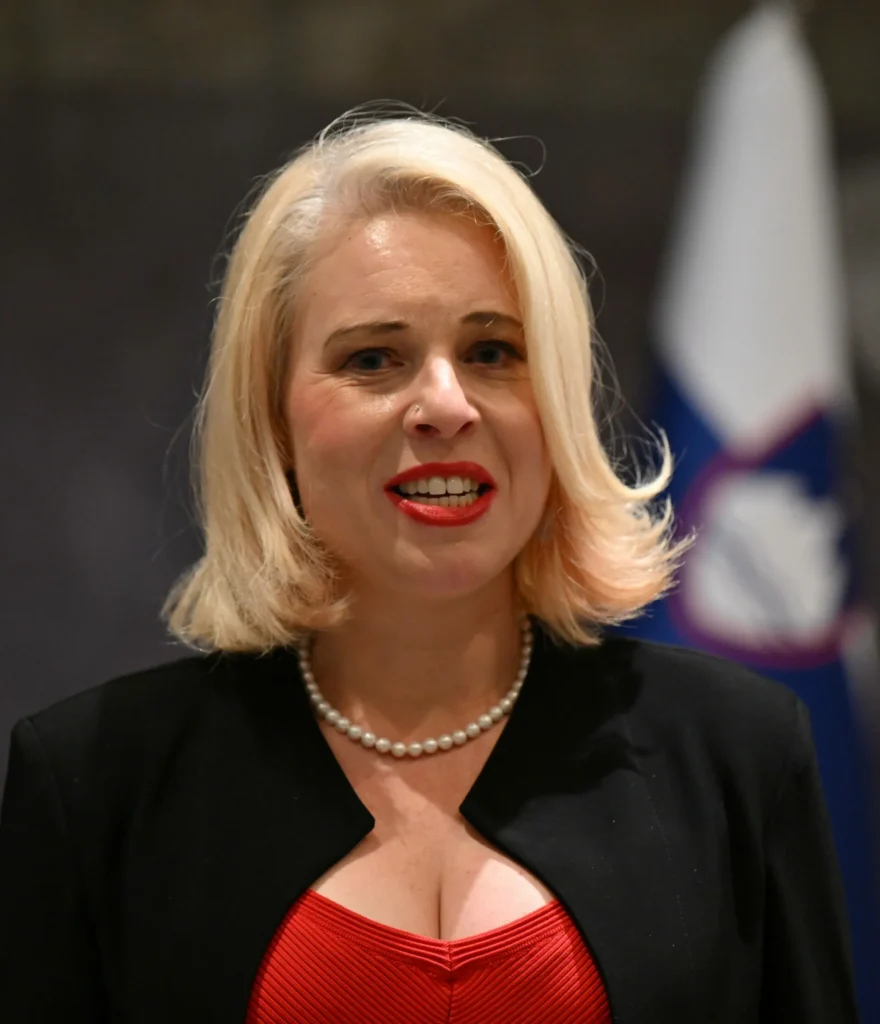During an N1 debate ahead of the referendum on the Act on Assistance in Voluntary Ending of Life, the Speaker of the National Assembly, Urška Klakočar Zupančič, launched an extremely xenophobic attack on the Catholic Church for opposing euthanasia. She pointed the finger exclusively at the Church, even though the joint statement against the law was signed by all the largest religious communities in Slovenia – including the Muslim, Orthodox, Jewish, Pentecostal and Evangelical communities. She did not dare utter a single word against Muslims or the other communities.
Many therefore describe her appearance as Christophobic, selective and deliberately designed to create the false impression that only the Catholic Church opposes euthanasia, when in reality practically all religions in Slovenia – as well as the entire medical profession – stand united against it. The debate quickly turned into a discussion about who is and who is not allowed to participate in public ethical discourse. Urška Klakočar Zupančič claimed that the Church has no business deciding on matters of life and death, thereby ignoring the fact that a pluralistic public space exists precisely so that different worldviews can be expressed and confronted. She accused the Catholic Church of wanting to control society and of “always meddling in the intimate spheres of human life”. She insinuated that the Church opposes an individual’s right to a “dignified death” and is motivated by self-interest. Yet she said not one sentence about the other religious communities that hold exactly the same position – a fact that the Speaker of the National Assembly should certainly be aware of.The facts, however, are indisputable: the statement against the law was not issued by one church alone but by several religious communities. It was signed by:
- President of the Slovenian Bishops’ Conference, Dr Andrej Saje
- Bishop of the Evangelical Church, Mag. Leon Novak
- Superintendent of the Pentecostal Church, Dr Daniel Grabar
- Mufti of the Islamic Community, Mag. Nevzet Porić
- Archpriestly deputies of the Serbian and Macedonian Orthodox Churches
- Vice-President of the Jewish Community, Dr Igor Vojtic
“Freedom” that leads to death is not freedom – it is despair that society has failed to resolve
All these communities stressed the same point: human life possesses inalienable value from conception to natural death, and the law represents an unacceptable violation of fundamental human dignity. They also warned of the danger that society might begin distinguishing between “worthy” and “less worthy” lives, and that the sick and elderly could come to feel like a burden. The religious leaders emphasised the need to improve palliative care rather than legalise assisted suicide. They called on believers to send a clear message at the referendum on 23 November: to the sick and vulnerable we offer not death, but help, closeness and respect for life. Despite this unity among religious communities, the Speaker singled out only the Catholic Church for attack. She did not even mention the Muslim community, which opposes the law just as firmly. Many see this as political calculation: attacking Christians is permitted; attacking Muslims is risky.This raises serious questions about the integrity and impartiality of the highest representative of the legislative branch. If a debate on such a sensitive issue as the right to life is to be conducted responsibly and comprehensively, selective attacks on a single community contribute neither to understanding nor to respectful dialogue. On the contrary – they create the impression of an ideological settling of scores, with the Speaker using her office to fuel prejudice against one religion while completely ignoring others that are equally critical of the law.
The Speaker’s misguided ideas
She went on to say: “True love is when you let a person live the way they want; when you let a person decide for themselves; when you grant them all the fundamental rights of humanity and humaneness. That is true divine love. We show true love when we allow a person to decide for themselves. For this opposition is, in fact, selfishness.”Yet the “true love” that Klakočar Zupančič speaks of never leads a person to death. Love never says: “Kill yourself because you are suffering”; instead, it offers support and help. Opposing the culture of death is not selfishness. Selfishness is when society decides that a human life in old age or illness is no longer worth the effort and that treatment is too expensive.She is not the only one attacking the Church for defending the sanctity of life.
Svetlana Makarovič also pointed the finger at the Church: “When I decide to die, that is solely my affair. My life is not the property of God, and still less of any pope, bishop or doctor. Let’s go to the referendum – which, by the way, has been forced upon us by these right-wing extremists and the Catholic Church.”
I. K.


